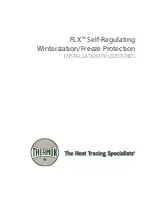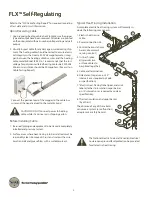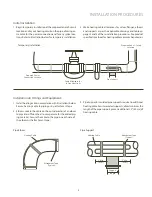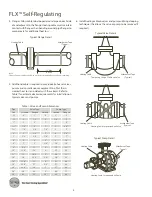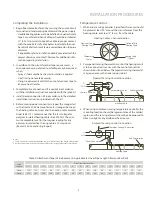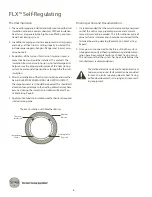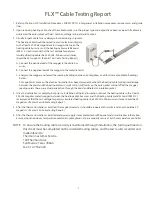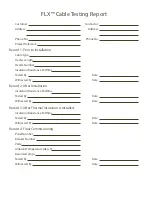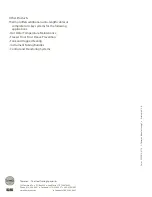
FLX
TM
Self-Regulating
6
Final Inspection and Documentation . . .
1. It is recommended that the circuit be temporarily energized
so that the volts, amps, pipe temperature and ambient
temperature may be recorded. This information may be of
value for future reference and should be maintained for the
historical operating data log (Record 4 on Cable Testing
Report).
2. Once power is connected but before putting the system
into operation, verify all heating cable testing and documen-
tation have been completed for each heat tracing circuit.
This will ensure that the system has been installed per the
manufacturers recommendations.
The National Electric Code and Canadian Electrical
Code require ground-fault protection be provided
for branch circuits supplying electric heat tracing
on fixed outdoor electric de-icing and snow-melt-
ing equipment.
Thermal Insulation . . .
1. The need for properly installed and well-maintained thermal
insulation cannot be overemphasized. Without insulation,
heat losses are generally too high to be offset by a conven-
tional heat tracing system.
2. In addition to piping and in-line equipment such as pumps
and valves, all heat sinks must be properly insulated. This
includes pipe supports, hangers, flanges and, in most cases,
valve bonnets.
3. Regardless of the type or thickness of insulation used, a
protective barrier should be installed. This protects the
insulation from moisture intrusion, physical damage and
helps ensure the proper performance of the heat tracing
system. Seal around all penetrations through the thermal
insulation.
4. After the installation of the thermal insulation and weather
barrier but BEFORE ENERGIZING THE HEATING CIRCUIT,
the megohmmeter test should be repeated. This should call
attention to any damage to the heating cable that may have
occurred during the insulation installation. (Record 3 on
Cable Testing Report)
5. Apply caution labels to insulation weather barrier at required
intervals along pipe
Thermal Insulation with Weather Barrier
Heating Cable
(Typical)
Temperature
Sensor
Weather
Barrier
Thermal
Insulation

